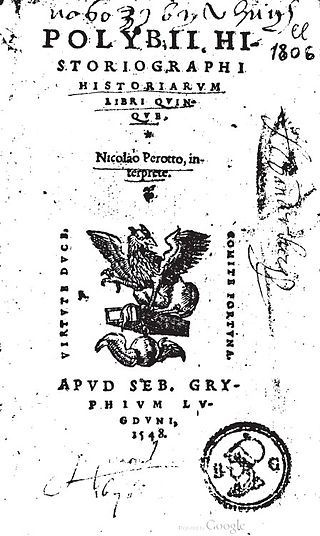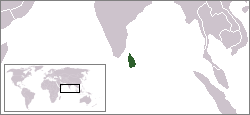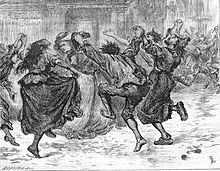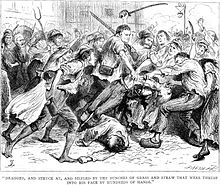
A government is the system or group of people governing an organized community, generally a state.
Aristocracy is a form of government that places power in the hands of a small, privileged ruling class, the aristocrats.
A sophist was a teacher in ancient Greece in the fifth and fourth centuries BCE. Sophists specialized in one or more subject areas, such as philosophy, rhetoric, music, athletics and mathematics. They taught arete, "virtue" or "excellence", predominantly to young statesmen and nobility.

A tyrant, in the modern English usage of the word, is an absolute ruler who is unrestrained by law, or one who has usurped a legitimate ruler's sovereignty. Often portrayed as cruel, tyrants may defend their positions by resorting to repressive means. The original Greek term meant an absolute sovereign who came to power without constitutional right, yet the word had a neutral connotation during the Archaic and early Classical periods. However, Greek philosopher Plato saw tyrannos as a negative word, and on account of the decisive influence of philosophy on politics, deemed tyranny the "fourth and worst disorder of a state."
Tyrants lack "the very faculty that is the instrument of judgment"—reason. The tyrannical man is enslaved because the best part of him (reason) is enslaved, and likewise, the tyrannical state is enslaved, because it too lacks reason and order.
The Thirty Tyrants were an oligarchy that briefly ruled Athens from 405 BC - 404 BC. Installed into power by the Spartans after the Athenian surrender in the Peloponnesian War, the Thirty became known for their tyrannical rule, first being called "The Thirty Tyrants" by Polycrates. Although they maintained power for only eight months, their reign resulted in the killing of 5% of the Athenian population, the confiscation of citizens' property and the exile of other democratic supporters.
In philosophy, economics, and political science, the common good is either what is shared and beneficial for all or most members of a given community, or alternatively, what is achieved by citizenship, collective action, and active participation in the realm of politics and public service. The concept of the common good differs significantly among philosophical doctrines. Early conceptions of the common good were set out by Ancient Greek philosophers, including Aristotle and Plato. One understanding of the common good rooted in Aristotle's philosophy remains in common usage today, referring to what one contemporary scholar calls the "good proper to, and attainable only by, the community, yet individually shared by its members."
The tyranny of the majority is an inherent weakness to majority rule in which the majority of an electorate pursues exclusively its own objectives at the expense of those of the minority factions. This results in oppression of minority groups comparable to that of a tyrant or despot, argued John Stuart Mill in his 1859 book On Liberty.
A timocracy in Aristotle's Politics is a state where only property owners may participate in government. More advanced forms of timocracy, where power derives entirely from wealth with no regard for social or civic responsibility, may shift in their form and become a plutocracy where the wealthy rule.
Laconophilia is love or admiration of Sparta and of the Spartan culture or constitution. The term derives from Laconia, the part of the Peloponnesus where the Spartans lived.
Might makes right or Might is right is an aphorism on the origin of morality, with both descriptive and prescriptive senses.
Politeia is an ancient Greek word used in Greek political thought, especially that of Plato and Aristotle. Derived from the word polis ("city-state"), it has a range of meanings from "the rights of citizens" to a "form of government".
Mixed government is a form of government that combines elements of democracy, aristocracy and monarchy, ostensibly making impossible their respective degenerations which are conceived in Aristotle's Politics as anarchy, oligarchy and tyranny. The idea was popularized during classical antiquity in order to describe the stability, the innovation and the success of the republic as a form of government developed under the Roman constitution.
Classical republicanism, also known as civic republicanism or civic humanism, is a form of republicanism developed in the Renaissance inspired by the governmental forms and writings of classical antiquity, especially such classical writers as Aristotle, Polybius, and Cicero. Classical republicanism is built around concepts such as liberty as non-domination, self-government, rule of law, property-based personality, anti-corruption, abolition of monarchy, civics, civil society, common good, civic virtue, popular sovereignty, patriotism and mixed government.
Politics is a work of political philosophy by Aristotle, a 4th-century BC Greek philosopher.

A democracy is a political system, or a system of decision-making within an institution, organization, or state, in which members have a share of power. Modern democracies are characterized by two capabilities of their citizens that differentiate them fundamentally from earlier forms of government: to intervene in society and have their sovereign held accountable to the international laws of other governments of their kind. Democratic government is commonly juxtaposed with oligarchic and monarchic systems, which are ruled by a minority and a sole monarch respectively.

Social cycle theories are among the earliest social theories in sociology. Unlike the theory of social evolutionism, which views the evolution of society and human history as progressing in some new, unique direction(s), sociological cycle theory argues that events and stages of society and history generally repeat themselves in cycles. Such a theory does not necessarily imply that there cannot be any social progress. In the early theory of Sima Qian and the more recent theories of long-term ("secular") political-demographic cycles as well as in the Varnic theory of P.R. Sarkar, an explicit accounting is made of social progress.
Isonomia was a word used by ancient Greek writers such as Herodotus and Thucydides to refer to some kind of popular government. It was subsequently eclipsed until brought back into English as isonomy. Economist Friedrich Hayek attempted to popularize the term in his book The Constitution of Liberty and argued that a better understanding of isonomy, as used by the Greeks, defines the term to mean "the equal application of the laws to all."

Polybius' Histories were originally written in 40 volumes, only the first five of which are extant in their entirety. The bulk of the work was passed down through collections of excerpts kept in libraries in the Byzantine Empire. Polybius, a historian from the Greek city of Megalopolis in Arcadia, was taken as a hostage to Rome after the Roman victory in the Third Macedonian War, and there he began to write an account of the rise of Rome to a great power.

The 1956 anti-Tamil pogrom, also known as the Gal Oya riots, was the first organised pogrom against Sri Lankan Tamils in the Dominion of Ceylon. It began with anti-Tamil rioting in Colombo, followed by anti-Sinhalese rioting in Batticaloa. The worst of the violence took place in the Gal Oya valley, where local majority Sinhalese colonists and employees of the Gal Oya Development Board commandeered government vehicles, dynamite and weapons and massacred minority Tamils. It is estimated that over 150 people, mostly Tamils, had died during the violence. The police and army were eventually able to bring the situation under control.

Athenian democracy developed around the 6th century BC in the Greek city-state of Athens, comprising the city of Athens and the surrounding territory of Attica. Although Athens is the most famous ancient Greek democratic city-state, it was not the only one, nor was it the first; multiple other city-states adopted similar democratic constitutions before Athens. By the late 4th century BC, as many as half of the over one thousand existing Greek cities might have been democracies. Athens practiced a political system of legislation and executive bills. Participation was open to adult, free male citizens The metics probably constituted no more than 30 percent of the total adult population.









